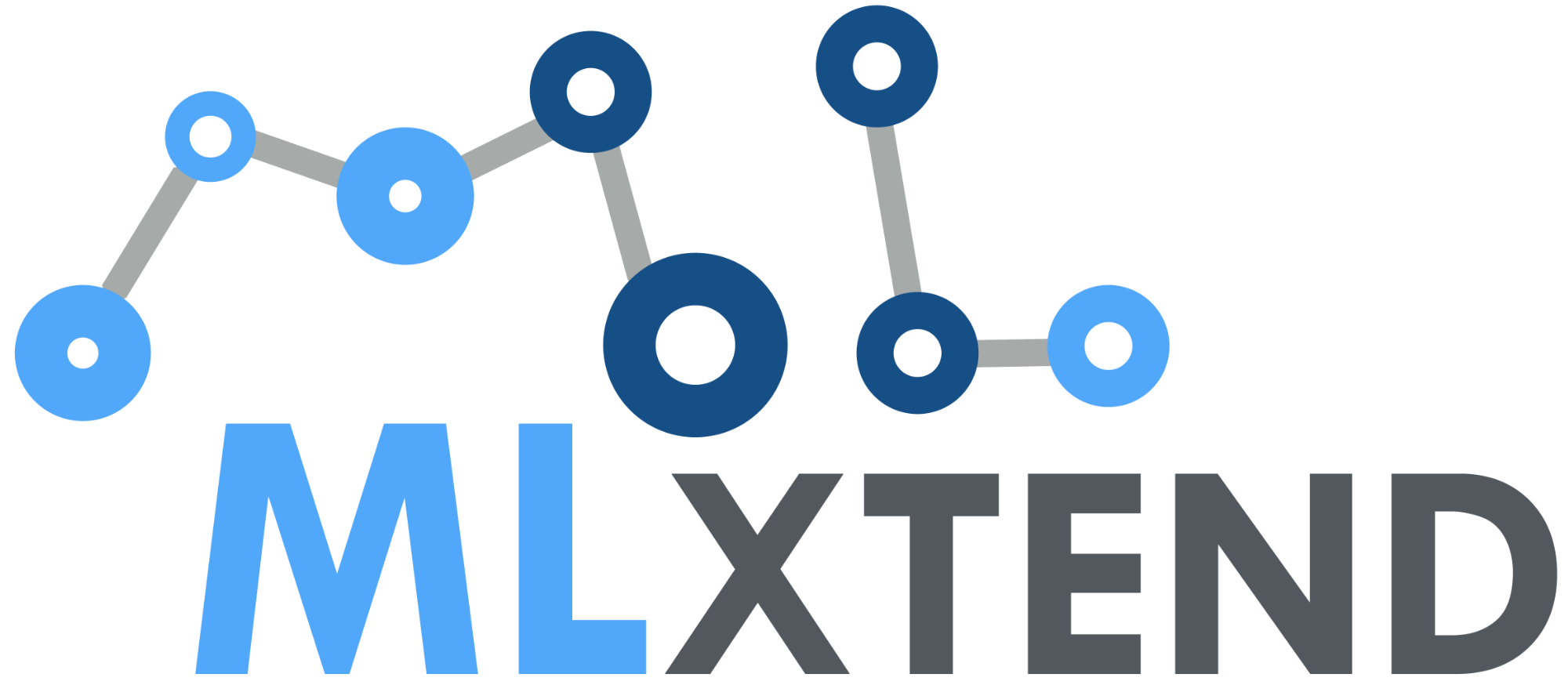
Mlxtend (extensions d'apprentissage automatique) est une bibliothèque Python d'outils utiles pour les tâches quotidiennes de science des données.
Sébastien Raschka 2014-2024
Pour installer mlxtend, exécutez simplement
pip install mlxtend Vous pouvez également télécharger le package manuellement à partir de l'index des packages Python https://pypi.python.org/pypi/mlxtend, le décompresser, naviguer dans le package et utiliser la commande :
python setup.py installSi vous utilisez conda, pour installer mlxtend, exécutez simplement
conda install -c conda-forge mlxtend La version mlxtend sur PyPI peut toujours être en retard ; vous pouvez installer la dernière version de développement à partir du référentiel GitHub en exécutant
pip install git+git://github.com/rasbt/mlxtend.git#egg=mlxtendOu, vous pouvez créer le référentiel GitHub à partir de https://github.com/rasbt/mlxtend et installer mlxtend à partir de votre lecteur local via
python setup.py install import numpy as np
import matplotlib . pyplot as plt
import matplotlib . gridspec as gridspec
import itertools
from sklearn . linear_model import LogisticRegression
from sklearn . svm import SVC
from sklearn . ensemble import RandomForestClassifier
from mlxtend . classifier import EnsembleVoteClassifier
from mlxtend . data import iris_data
from mlxtend . plotting import plot_decision_regions
# Initializing Classifiers
clf1 = LogisticRegression ( random_state = 0 )
clf2 = RandomForestClassifier ( random_state = 0 )
clf3 = SVC ( random_state = 0 , probability = True )
eclf = EnsembleVoteClassifier ( clfs = [ clf1 , clf2 , clf3 ], weights = [ 2 , 1 , 1 ], voting = 'soft' )
# Loading some example data
X , y = iris_data ()
X = X [:,[ 0 , 2 ]]
# Plotting Decision Regions
gs = gridspec . GridSpec ( 2 , 2 )
fig = plt . figure ( figsize = ( 10 , 8 ))
for clf , lab , grd in zip ([ clf1 , clf2 , clf3 , eclf ],
[ 'Logistic Regression' , 'Random Forest' , 'RBF kernel SVM' , 'Ensemble' ],
itertools . product ([ 0 , 1 ], repeat = 2 )):
clf . fit ( X , y )
ax = plt . subplot ( gs [ grd [ 0 ], grd [ 1 ]])
fig = plot_decision_regions ( X = X , y = y , clf = clf , legend = 2 )
plt . title ( lab )
plt . show ()
Si vous utilisez mlxtend dans le cadre de votre flux de travail dans une publication scientifique, pensez à citer le référentiel mlxtend avec le DOI suivant :
@article{raschkas_2018_mlxtend,
author = {Sebastian Raschka},
title = {MLxtend: Providing machine learning and data science
utilities and extensions to Python’s
scientific computing stack},
journal = {The Journal of Open Source Software},
volume = {3},
number = {24},
month = apr,
year = 2018,
publisher = {The Open Journal},
doi = {10.21105/joss.00638},
url = {https://joss.theoj.org/papers/10.21105/joss.00638}
}
La meilleure façon de poser des questions est via le canal de discussion GitHub. Si vous rencontrez des bugs d'utilisation, n'hésitez pas à utiliser directement le issue tracker de GitHub.